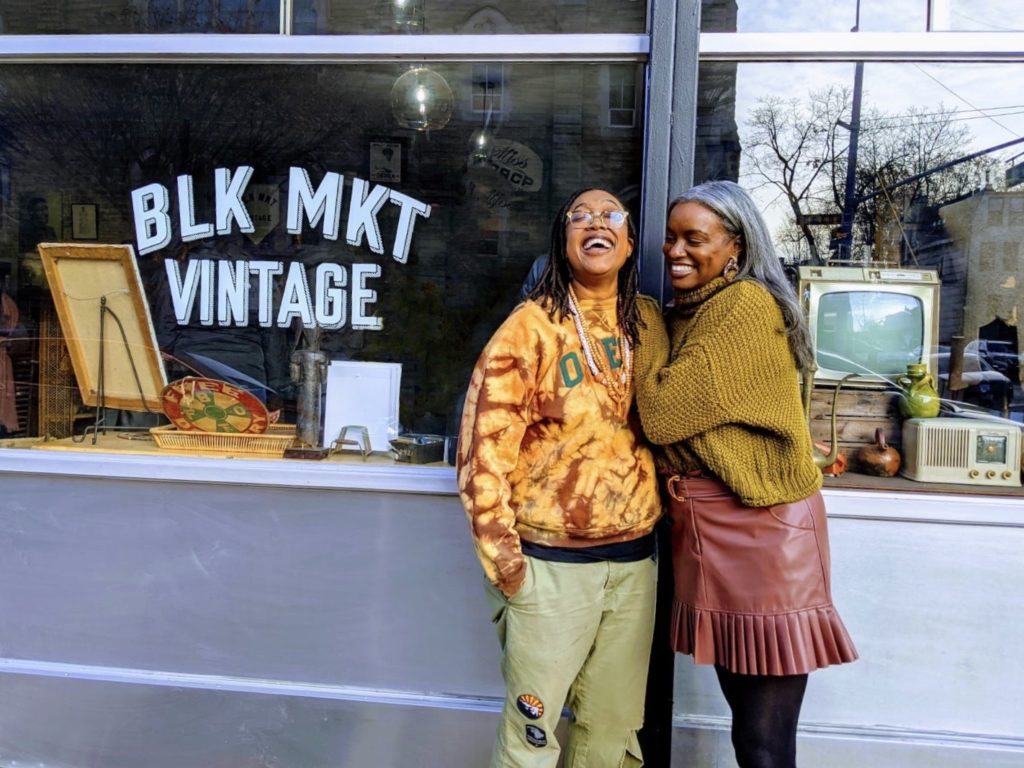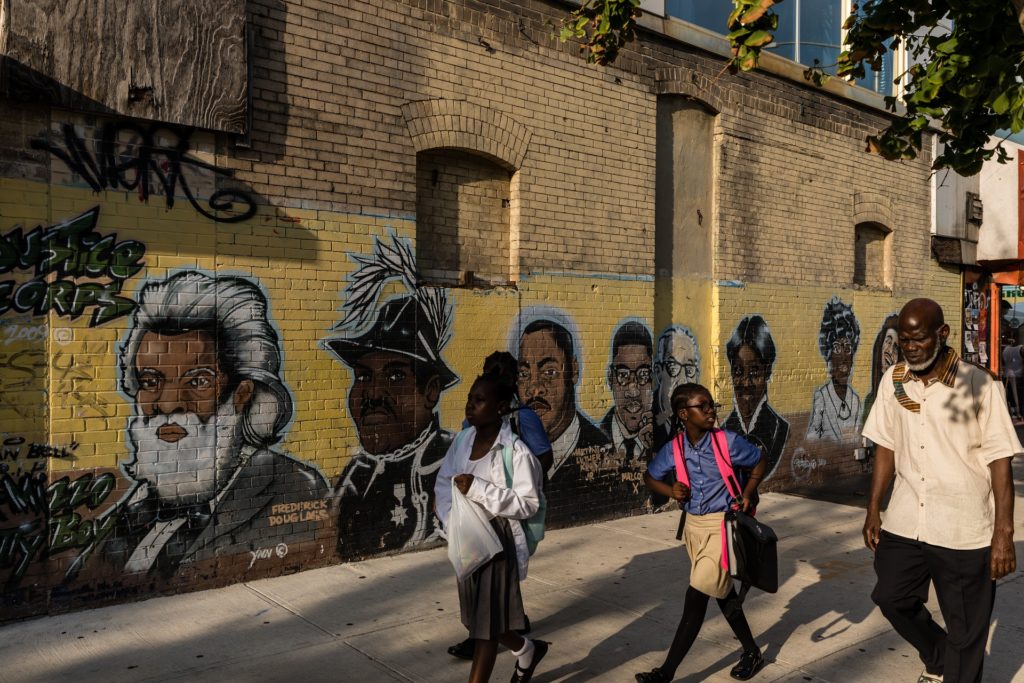BLK MKT Vintage is preserving black memory and meaning through antiques
The Bed-Stuy business is part nostalgia shop, part community space.

Old-timey TVs and clock radios. Upholstered furniture with perfect proportions of weather and charm. Classic novels and out-of-print magazine covers that read, “The Jeffersons Family: New Black TV Show Joins The Ranks!” These are just some of the items scattered about the showroom floor inside BLK MKT Vintage, a recently opened corner antique store on Marcus Garvey Boulevard in Bedford-Stuyvesant.
Owned and operated by a couple with Brooklyn roots, the 900-square-foot BLK MKT Vintage combines commerce with community space, and is part of a greater push to ensure small business sustainability in the borough, especially for local, minority entrepreneurs.
“Gentrification has definitely taken its toll,” said Kiyanna Stewart, who co-owns and co-curates the shop with her business and life partner Jannah Handy. “We needed black kids to see that there could be a space devoted to antiquity that looked exactly like them.”
